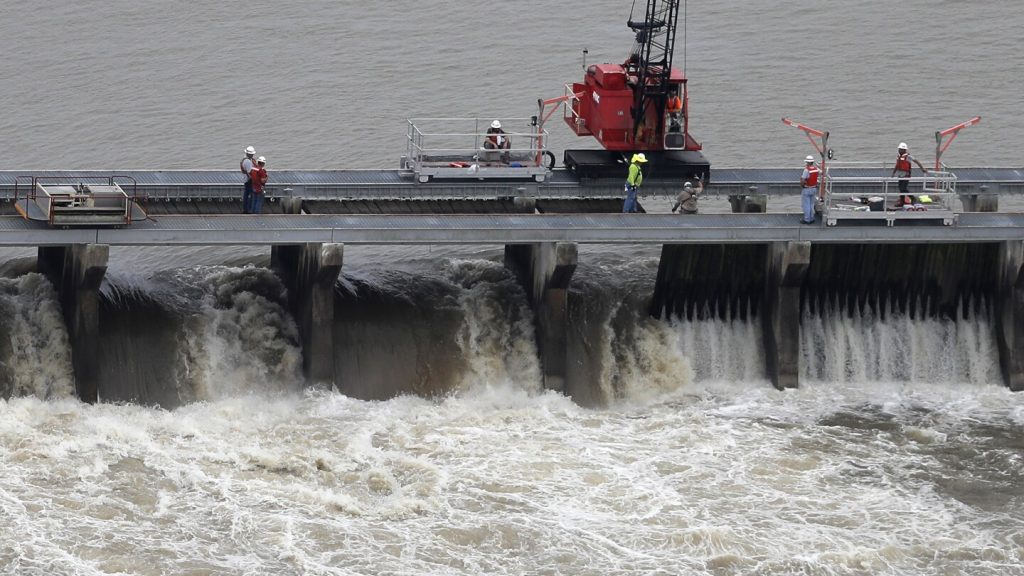The federal judge in Gulfport, Mississippi dismissed a lawsuit filed by local governments and business groups, known as the Mississippi Sound Coalition, seeking to protect dolphins along the Mississippi Gulf Coast. The lawsuit was filed in response to the killing and sickness of dozens of dolphins in 2019 due to the prolonged opening of the Bonnet Carre’ Spillway by the Army Corps of Engineers. The spillway is used to divert Mississippi River water to Lake Pontchartrain and Lake Borgne, ultimately affecting the salinity of the Mississippi Sound in the Gulf of Mexico. However, the judge ruled that the coalition did not have legal standing to sue and failed to demonstrate imminent harm.
The lawsuit claimed that the polluted freshwater entering the Gulf in 2019, due to the prolonged opening of the spillway for 120 days, led to the stranding of dead and sickened bottlenose dolphins along Mississippi beaches. The coalition argued that this situation negatively impacted the tourism and seafood industries, which are crucial to the region’s economy. They also contended that the Army Corps and other agencies should have obtained a U.S. Department of Commerce permit under the Marine Mammal Protection Act before conducting operations that could harm marine animals like dolphins. The coalition sought a court order for the Army Corps to seek permits before future spillway openings.
However, the judge sided with the Army Corps, stating that the coalition did not provide enough evidence to show that they faced imminent harm from potential future spillway openings. The judge highlighted that the frequency and duration of spillway operations are unpredictable, as is the potential threat to dolphins. He noted that there was no evidence of harm to dolphins during the last spillway opening in 2020 or previous openings in 2018 and 2016. The judge deemed the possibility of future harm claimed by the plaintiffs as too speculative. The coalition’s attorney, Robert Wiygul, did not immediately respond to requests for comment on the ruling.
The Gulf Coast region, particularly Mississippi, relies heavily on tourism and seafood industries for economic stability. The presence of healthy marine life, including dolphins, plays a significant role in attracting visitors and supporting local businesses. The dismissal of the lawsuit brings into question the ability of local stakeholders to hold government agencies accountable for potential environmental impacts on marine wildlife. This decision could have broader implications for future conservation efforts and the balance between economic development and environmental protection along the Mississippi Gulf Coast.
Environmental advocates and wildlife conservationists may view this ruling as a setback in the ongoing efforts to prioritize the protection of marine animals, such as dolphins, in the face of human activities that may harm their habitat. The complex relationship between flood control measures, freshwater management, and marine ecosystem health requires a delicate balance that considers both economic interests and environmental sustainability. Moving forward, it remains to be seen how stakeholders will address the challenges posed by activities like spillway operations and their potential impacts on marine wildlife in the Mississippi Gulf Coast region.


